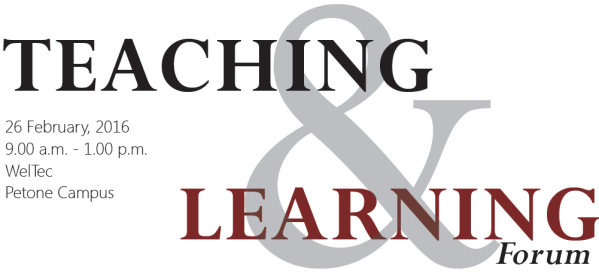Sometimes you need to step back and reflect on what is happening to describe what is happening.
What do I mean?

Tomorrow is the 3rd Teaching & Learning Forum held at WelTec. This has changed slightly over the three years of its existence and is edging itself quietly towards being symbolic of communities of practice.
How so?
I’ve been working on and off on elearning activities, actions and developments with the automotive tutors, in particular, and have observed over time that:
- leaders appear to lead certain sections/parts of the developments
- there are some who watch and wait
- once there is a ground swell the reluctant begin to participate
- there is a sense that they are generating new knowledge as well as exploring ‘old’ knowledge.
- there is a definite culture of enquiry
These kinds of activities have culminated this year in the annual Teaching and Learning Forum being driven more by the tutors than by the capability/professional development staff.
What is a Community of Practice?
I began to realise that what was happening was exactly what Lave and Wenger (1998) talk about when they say that Communities of Practice have three dimensions:
- what it is about
- how it functions
- what capability is produced
This one is about developing different ways of teaching. It functions through leadership, exploration and having both small and large teaching groups, and it is producing a shared capability to make change happen.
Communities of practice were used by corporations as well learning institutions. An example is Chrysler. The development of communities of practice has sped up and improved the development of new products. The company—now DaimlerChrysler—via the CoPs named Tech Clubs, created an Engineering Book of Knowledge – a database that the engineers developed so they could do their jobs. It includes compliance standards, lessons learned, best practice and so on. The key, however, is that the engineers took responsibility for maintaining this database. Through the Tech Clubs “Engineers have discovered that participation helps them do their jobs better, and the time spent together is a good investment. It often saves them time later and increases their confidence in their own designs.” (Wenger, McDermott & Snyder, 2002).
And this quote is now my favourite:
“In short, what makes managing knowledge a challenge is that it is not an object that can be stored, and moved around like a pieces of equipment or a document. It resides in the skills, understanding and relationships of its members as well as in the tools, documents and processes that embody aspects of this knowledge. Companies must manage their knowledge in ways that do not merely reduce it to an object”. (Ibid, p.11).
What makes them work?
- Participants’ commitment to the idea
- Seeing value in sharing ideas and practice
- Having a facilitator – possibly on a rotating basis or allowing a leader to emerge
- Having some shared and valued outcomes
- Having regular meetings
- Integrating them into the organisation—by allowing participation, removing barriers and valuing their role
- “If organisations fail to take active steps in this direction communities of practice will still exists, but they are unlikely to achieve their full potential.” (ibid, p.13).
- A basic structure—a domain of knowledge, a community of people and shared practice
- Asking exploratory questions.
I’m looking forward to tomorrow’s forum.
References
Brown, K. (Ed) Encyclopedia of Language and Linguistics.[2nd edition]. Elsevier Ltd. Retrieved from http://www.sciencedirect.com
Cambridge, D., Kaplan, S. & Suter, V. (2005). Community of practice design guide: A step by step guide for designing &cultivating communities of practice in higher education.
Eckert, P. (2006). Communities of practice. In Brown, K. (Ed) Encyclopedia of Language and Linguistics. [2nd edition]. Elsevier Ltd. Retrieved from http://www.sciencedirect.com
Smith, M. K. (2003, 2009) ‘Jean Lave, Etienne Wenger and communities of practice’, the encyclopedia of informal education, www.infed.org/biblio/communities_of_practice.htm.
Wegner, E., McDermott, R. Synyder, W. M. (2002) Cultivating communities of practice: A guide to managing knowledge. Harvard Business Press. Retrieved from http://books.google.co.nz
